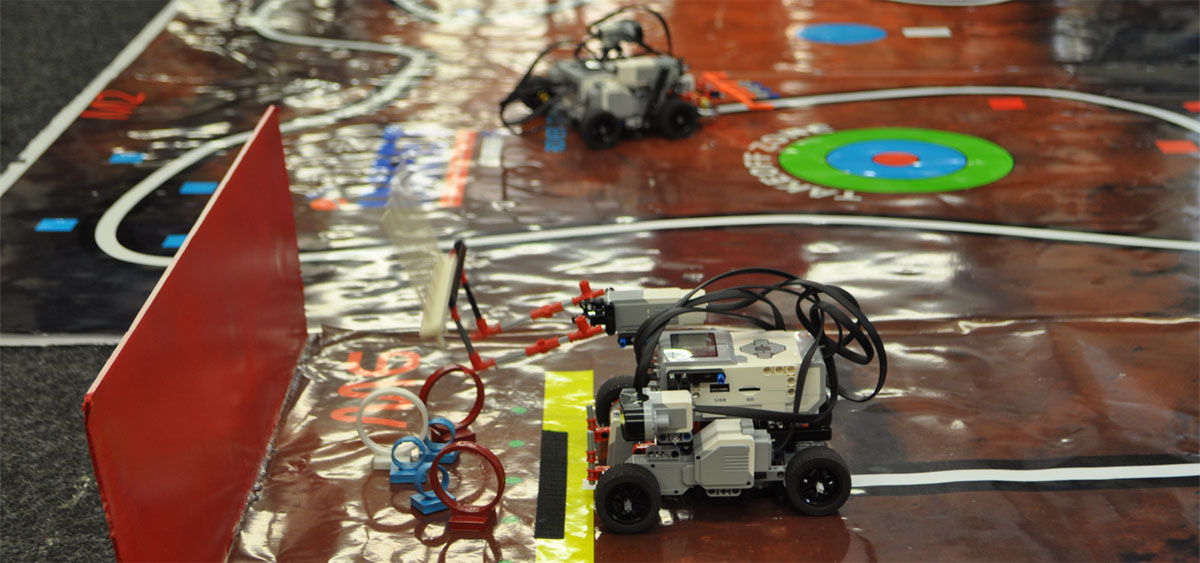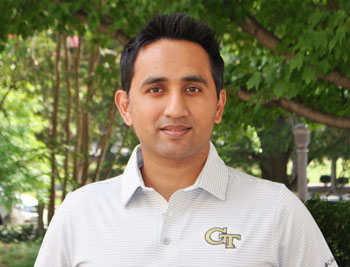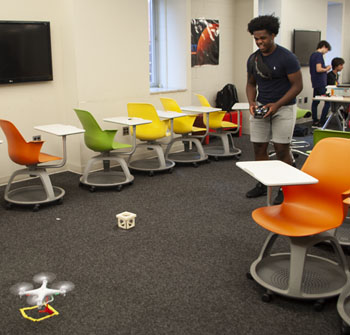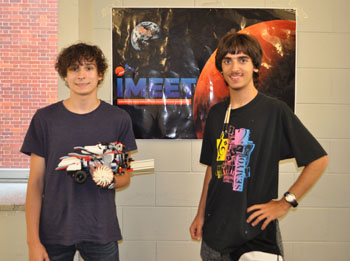
Rovers on a Mission. The 2019 NASA's Innovative Mars Exploration Education & Technology (IMEET) was taught at Georgia Institute of Technology, Kennedy Space Center Visitor Complex (Port Canaveral, FL), Coca-Cola Space Science Center (Columbus, GA), Museum of Aviation (Warner Robins, GA), and South Florida Science Center & Aquarium (West Palm Beach, FL). View more photos
Sixteen Atlanta-area teens spent the last two weeks of July at Georgia Tech's Aerospace Engineering School planning a mission to Mars - complete with land rovers and drones.
 |
| Srujal Patel |
After that, it was back to high school.
The students indulged their space dreams courtesy of NASA’s Innovative Mars Exploration Education and Technology (IMEET) camp, which was hosted by the Daniel Guggenheim School of Aerospace Engineering July 15-26.
"When they go back to school, they'll have great stories to tell," said Srujal Patel, the AE research engineer who oversaw the camp.
"But that's because they did a lot of hard work. We pushed them hard but that’s what we do at Georgia Tech."
Divided into five teams, the students were tasked with simulating NASA’s 2020 mission to Mars using rovers and drones. Their overall goal was to collect “supplies” -- in the form of magnets and rings-- that were placed on a laminated plastic racetrack.
Students quickly learned something that every engineer faces at some point: it may look easy on paper, but that doesn't mean it will work as planned. They also learned the one thing every successful engineer has to commit to heart: persistence is everything.
 |
| Practice Makes Perfect: Campbell High School student Elijah Colbert practices piloting the drone before competition. |
During the first week, teams learned how to use CATIA V5, a computer aided design (CAD) software program. (Thanks to strategic partner, Dassault Systemes, each student received a one-year license to use CATIA V5 on their own computers)
The students also visited the AE School's Yang Aero Maker Space where they used the 3D printer to make parts for their LEGO Mindstorms EV3 robots and Syma X5C 4-Channel 2.4GHz RC Explorers Quad Copter. Before their final task - launching five rover missions - they did some simple programming to get their vehicles ready for competition.
“The programming got really challenging during rover mission 3 because the course begins to curve significantly," said Patel.
"If students didn't program their vehicles for these types of conditions their robot would have a hard time keeping on the track."
Then they turned to designing the vehicle's wheels.
To successfully traverse Mar's rugged terrain, they young engineers replaced the standard-issue wheels with custom 3D-printed wheels.
On their final missions students were tasked with coding an attachable 3D-printed mechanical arm so that it could collect six rings that were placed on the track. The more they collected, the better their score.
Friends, family and AE faculty came together on the last day of the IMEET camp to cheer on the budding engineers and see who won the top prizes.
 |
| No Couch Potatoes Here. Team Potatoes (l to r) Braeden Larson and Guy Kemelmakher win first place in the 2019 IMEET camp. |
Team Potatoes took home the first prize - Georgia Tech swag and a Syma X5C drone - with a final score of 830 of the 1,000 possible points. Their rover vehicle would not have set any speed records here on Earth but...
“It’s still moves faster than the Curiosity Rover currently on Mars,” joked Patel.
Participants in the 2019 IMEET camp came from Alliance Academy of Innovation High School, Arabian Mountain High School, Campbell High School, Charles Drew Charter, Druid Hills High School, Georgia Washington High School, Georgia Cyber Academy, John's Creek High School, Marietta High School, Parkview High School, The Kings Academy, Walton High School and Westlake High School.